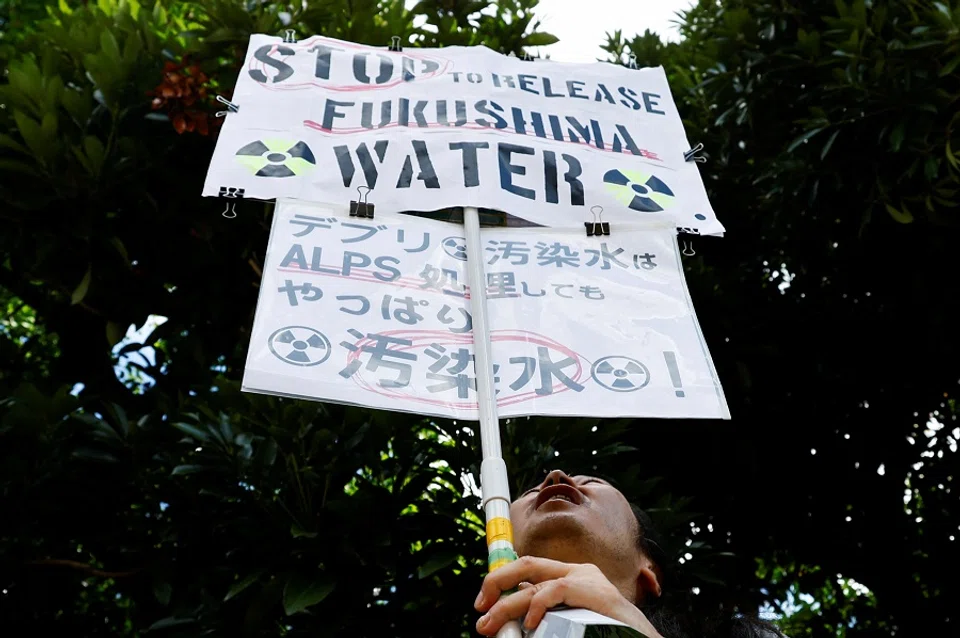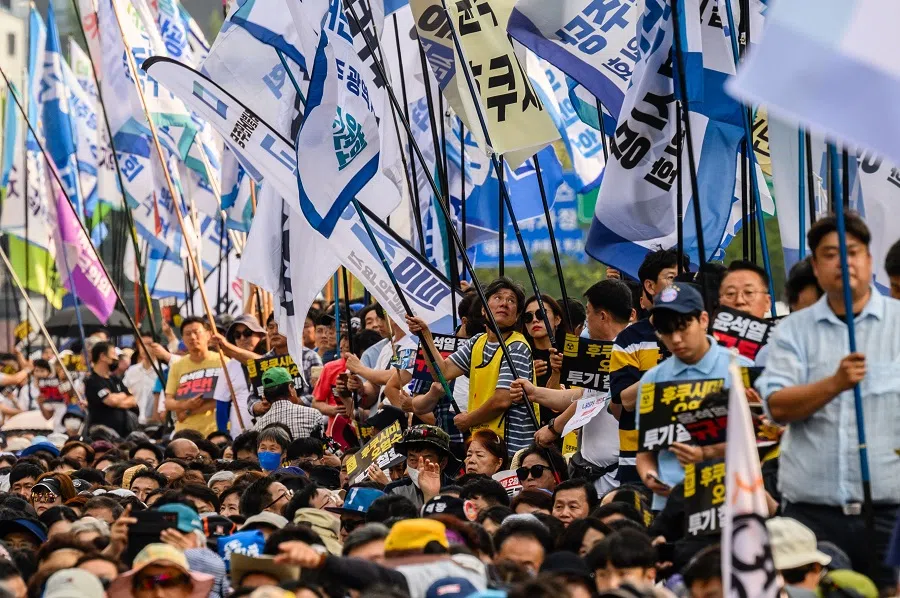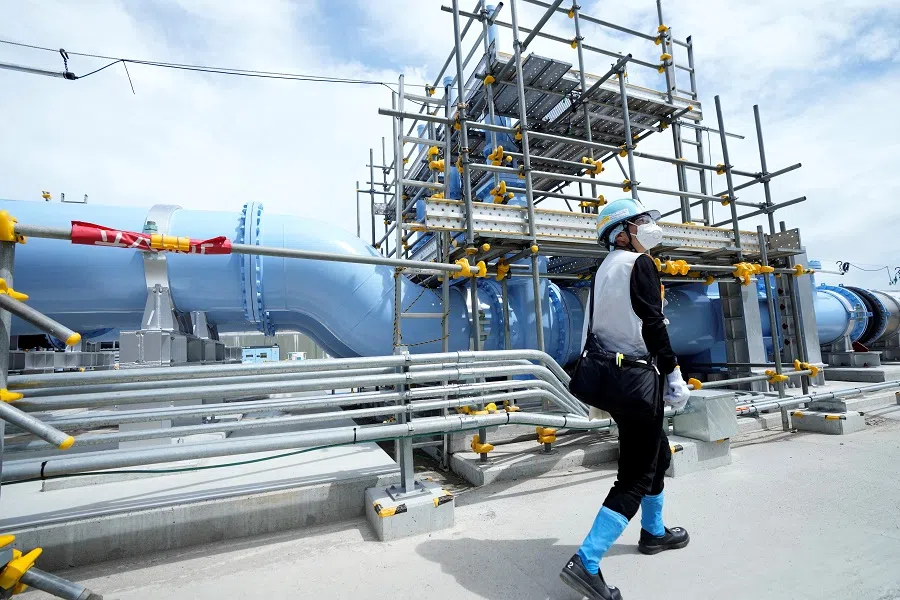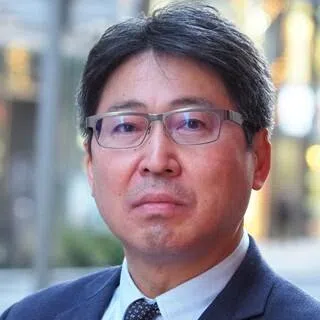Japanese academic: China's strong views about Fukushima water will affect Japan-China relations
Propaganda campaigns against Japan may leave China turning a deaf ear to Japan's explanations about the discharge of Fukushima treated water, says Japanese academic Shin Kawashima. This can only have dire consequences for Japan-China relations.

The Japanese side may not have predicted that the release of Advanced Liquid Processing System (ALPS)-treated water from the Fukushima Daiichi Nuclear Power Station (FDNPS) would become such a big problem between Japan and China. From Japan's perspective, there is nothing inherently wrong with the discharge of ALPS-treated water itself, apart from reputational damage.
During this period, China has labelled Fukushima's ALPS-treated water as "Fukushima nuclear-contaminated water", raised numerous doubts about it, engaged neighbouring countries in discussions on this issue, and sought their agreement with China's opposing stance on contaminated water.
Like China, South Korea has also raised doubts. It is believed that China was trying to put pressure on Japan while cooperating with South Korea and other Pacific nations. However, the Japanese government continued discussions with the International Atomic Energy Agency (IAEA) and accepted inspection teams. None of the IAEA's findings raised questions about the dangers of tritium or other substances.
In fact, the tritium content in ALPS-treated water is much lower than in wastewater discharged from nuclear power plants in China and other countries.

In other words, the IAEA did not object to the release of tritium into the sea, which the Japanese government is proceeding to do. Furthermore, the South Korean government, based on the results of this IAEA investigation and its own investigative team's assessment, has indicated support for Japan's decision. Pacific nations initially expressed concerns as well, but have also eased their voices of protest as a result of the professional findings.
In fact, the tritium content in ALPS-treated water is much lower than in wastewater discharged from nuclear power plants in China and other countries. This indicates that the concentration of tritium in Japan's discharge of treated water is not a problem per se, and that this understanding has been accepted to some extent not only within Japan but also internationally.
China makes strong protests
Of course, there are voices within Japan opposing the ocean release of the treated water. However, many of these objections are more concerned with reputational damage than with the treated water itself, and a significant portion of those opposing it are from the fishing industry.
It was expected that reputational damage could occur, and the Japanese government has promised to address this issue. However, it seems that both the Japanese government and Tokyo Electric Power Company (TEPCO) thought that the IAEA's investigations and verifications would be sufficient to explain the safety of the treated water release. They clearly recognised the importance of explaining the procedure to the outside world, as well as within Japan.
But given that they had received "scientific evidence" from the IAEA about the safety of the discharge of treated water, it appears that Japan had grown confident and self-assured. China's extremely strong rebuttal took advantage of this sense of self-assurance in Japan.
If the "contaminated water" itself is a big problem, and if the "contamination" spreads throughout the Pacific Ocean, the safety of the Chinese people cannot be maintained unless the import of marine products from all parts of the Pacific is prohibited.

China has launched a domestic campaign to warn that Japan's "nuclear-contaminated water" is dangerous, stepped up its external propaganda, and suspended all imports of Japanese seafood. If the "contaminated water" itself is a big problem, and if the "contamination" spreads throughout the Pacific Ocean, the safety of the Chinese people cannot be maintained unless the import of marine products from all parts of the Pacific is prohibited.
However, since the Chinese government has banned the import of only Japanese seafood even though it claims that the "contamination" will spread throughout the Pacific Ocean, at least at this stage, the import ban is more of a sanction against Japan than a measure for the safety of the Chinese people. So, what exactly are they "sanctioning"?
Firstly, it could be related to Japan not directly addressing China's protests. Secondly, it could be related to dissatisfaction with Japan's security policies and policies regarding Taiwan.
However, it seems that the Chinese government, once they have declared something as "dangerous", they might find it difficult to retract that statement by saying "it is safe after all". Especially since it was proclaimed as "dangerous" for the domestic audience, the raised fist could hardly be lowered.
...as long as China is carrying out propaganda at home and abroad on such a scale, it will be difficult for the time being to solve the problem.
China-Japan and China-Japan-South Korea relations affected
At present, there are very few countries or regions that are inclined to take measures such as import bans in line with China's claims. However, with how things are developing, the Chinese protests will inevitably affect the Japan-China summit meeting and the Japan-China-South Korea summit meeting that were envisioned for this fall.
Komeito leader Natsuo Yamaguchi, who formed a coalition with the Liberal Democratic Party, has also postponed his planned visit to China which was scheduled for 28-30 August. From now on, the Japanese government will have to explain to China and ask for their understanding, but as long as China is carrying out propaganda at home and abroad on such a scale, it will be difficult for the time being to solve the problem.
Related: Frostier Japan-China ties with Fukushima treated wastewater discharge | [Big Read] Doubts over Fukushima wastewater release hard to overcome | Japanese academic: A hard look at the true impact of Fukushima Daiichi water release | Fukushima wastewater: Why China is protesting while the US gives the nod | Can Japan and China find common interests and live in peace? | How China and Japan see each other





